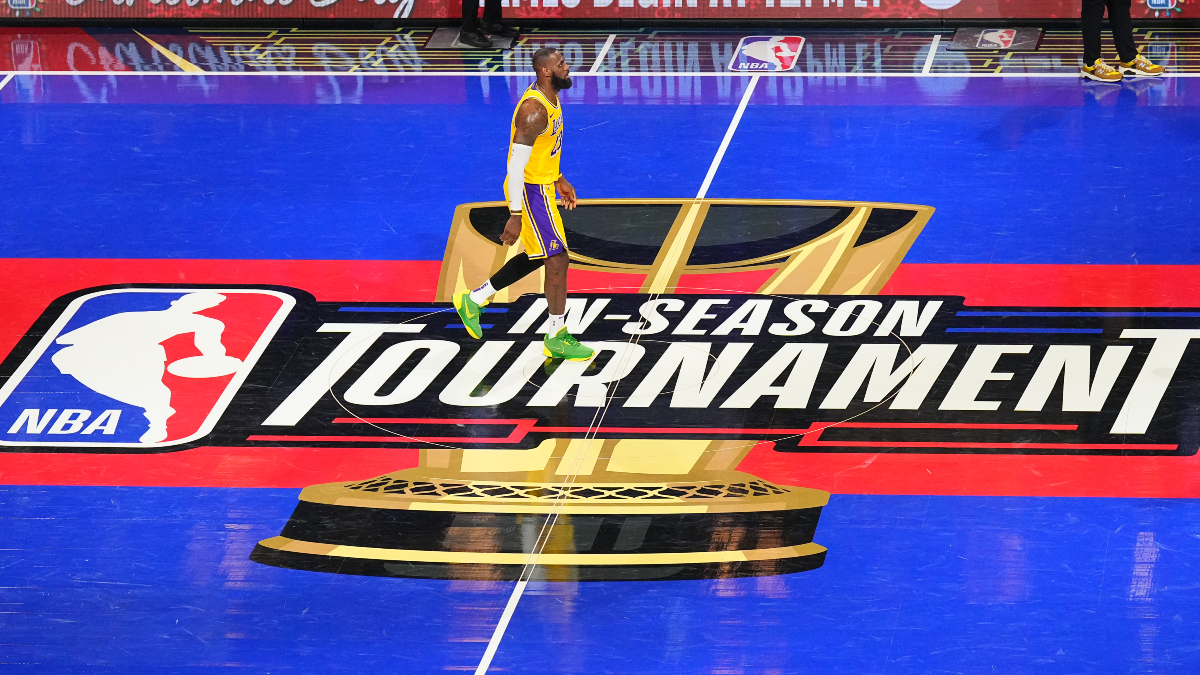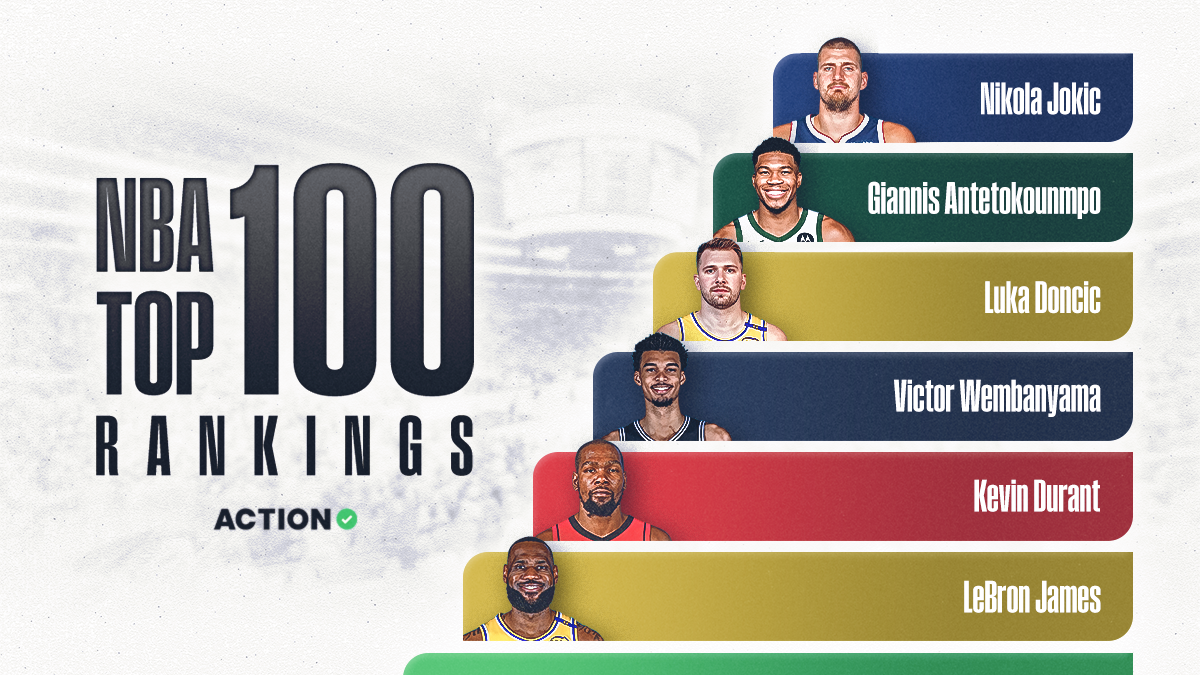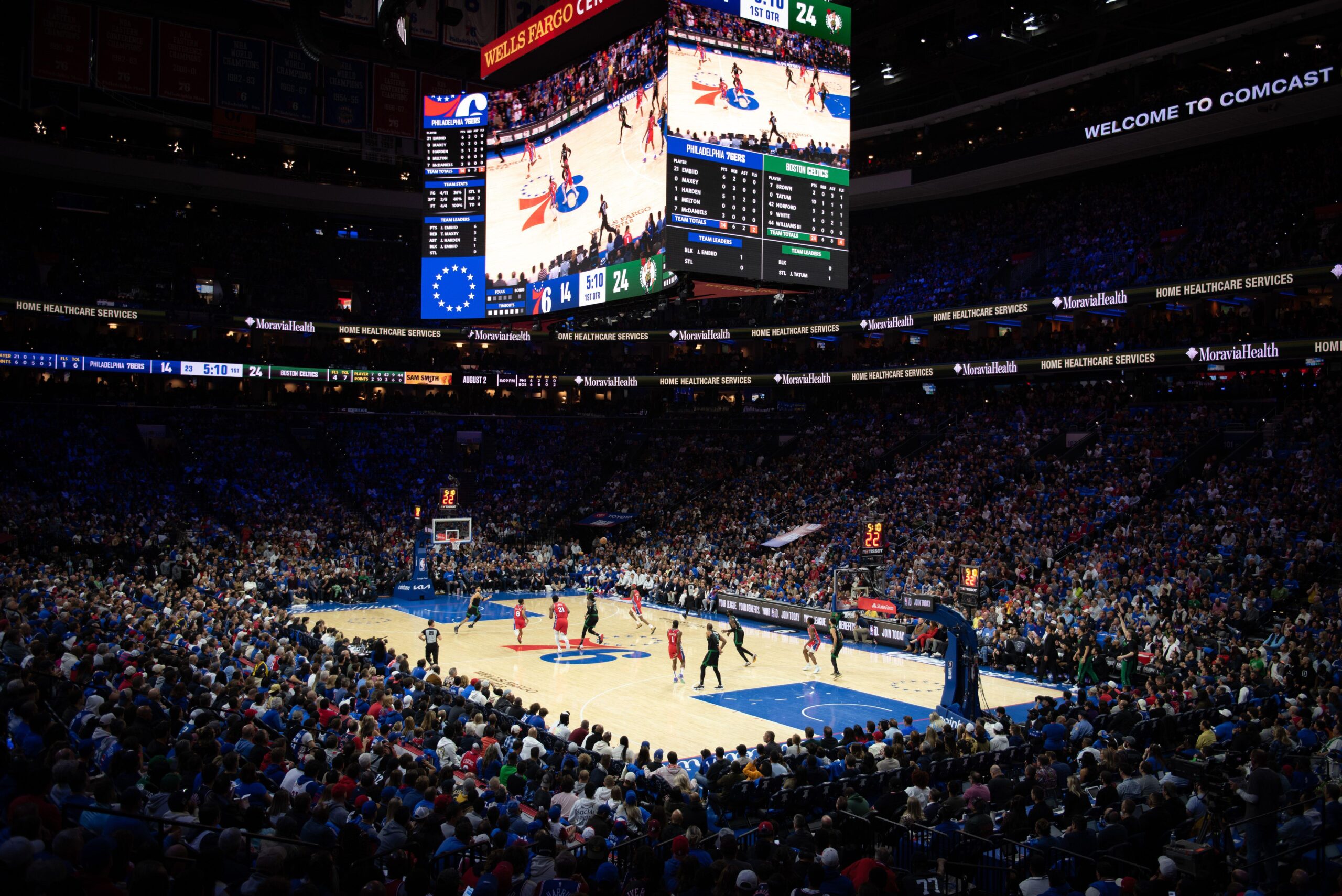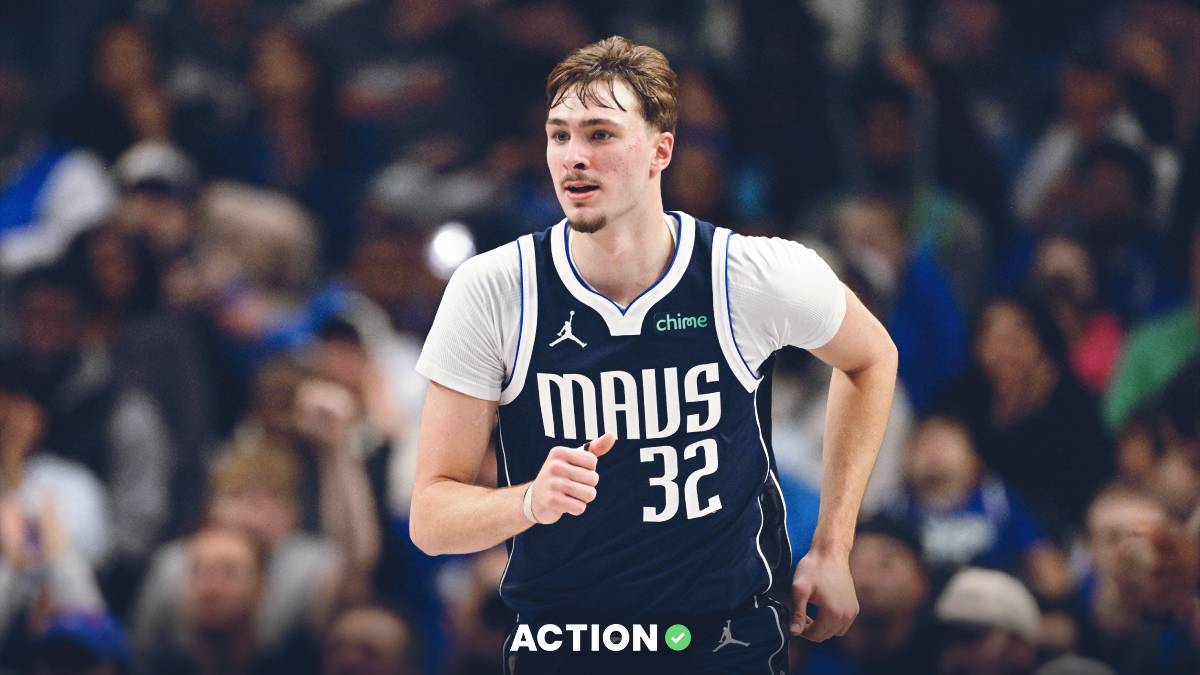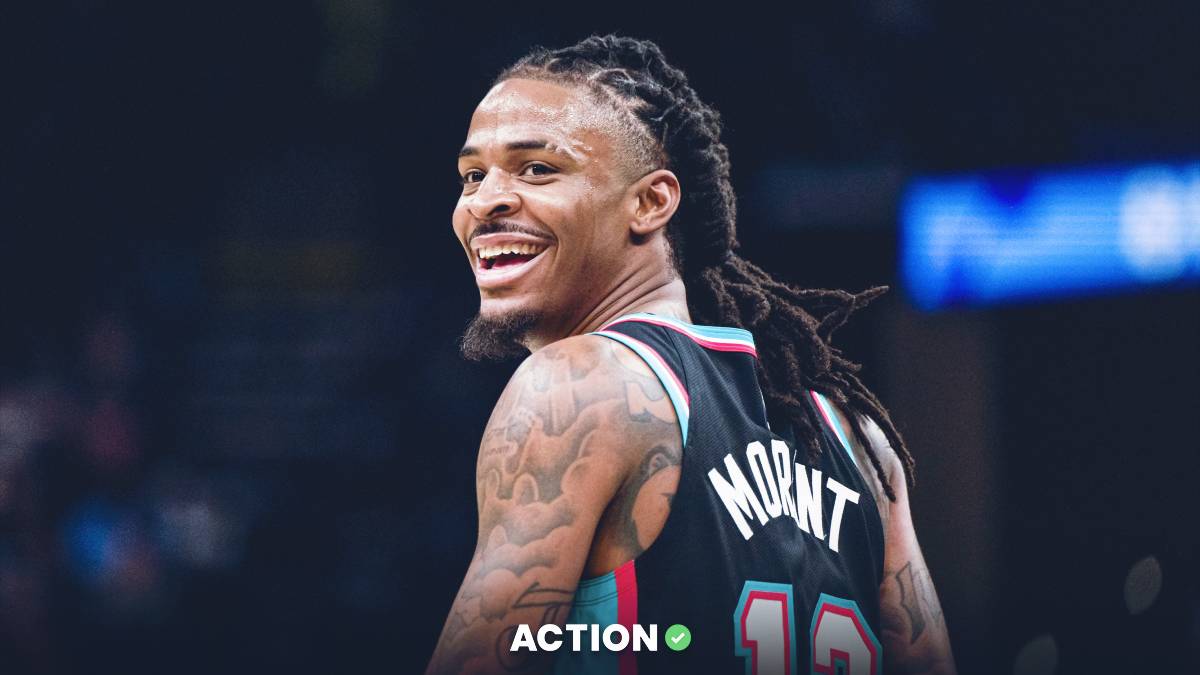LAS VEGAS — The NBA pulled it off. Sunday marked the end of the NBA's inaugural In-Season Tournament as the Los Angeles Lakers defeated the Indiana Pacers to take home the NBA Cup. It marked a fascinating first run of what looks to be an annual event going forward.
We learned a lot about the league, the tournament and the teams in the IST. Here's a list of the takeaways.
More Stakes in the Regular Season is a Good Thing
We've covered it before, but the tournament was a huge success. They added enough stakes to make two nights of games a week feel like they had extra meaning. The players responded by giving more effort than usual for a normal regular season game (but less than a playoff game), and the point differential meant that not only would teams run it up and upset the other team, but they would also battle to the very end.
The result was higher attendance, higher ratings, more social engagement and a tournament that, while not perfect, was widely praised.
It also reflects a simple issue for the league: they had to literally invent a tournament to make a portion of the regular season meaningful. But it worked, and maybe it provides a pathway for the future on top of an immediate engagement salve.
$500,000 Is Still a Good Amount of Motivation
There's been so much discussion of what the prizes should be for the tournament. Should the winner get a draft pick, homecourt advantage in the plaoffs, a playoff spot or something else?
The league chose not to mess with the structure of the playoffs or draft and instead made the incentive for the players very simple: money. Cash. Cold, hard, cash.
D'Angelo Russell said the $500,00 would pay for his All-Star and summer vacations. Who among us doesn't spend $500,00 on two vacations?
But it reflects how $500,000 is still a meaningful amount to NBA players who make tens of millions and is enough to get them to compete.
The Tournament Has Been a Long Time Coming
League officials revealed this week that this tournament has been over a decade in the making, with ongoing discussions of how to implement it, how to reward it and how to build it within the regular season.
It shows the amount of planning that has gone into the tournament, and that's before they reached the execution stage where they had to clear incredible logistical hurdles. It's also another sign that this tournament needed to work; too much was riding on it.
The Courts Were Wild on Purpose
I spoke with a league official this week who shared that the goal for the notorious courts was not to make the most aesthetically pleasing courts but instead, the ones that stood out the most. The top priority was to blend local elements in the details with bold colors to set the games apart. Players commented that the courts did make the games feel "different," and that enabled a higher level of competition.
For fans, tuning in on a Tuesday or Friday and knowing something was very different was meaningful and added to increased awareness of the tournament, whose details could be tough for fans to know ahead of time.
The NBA Needed the Tournament Early
Evan Wasch, executive vice president of basketball strategy and analytics for the NBA, told Action Network this week that the NBA considered having the tournament later but didn't want NBA trade season, All-Star or the late-season battle for playoff positioning to interfere with it.
Trade season is both a major talking point for the league and significant for teams trying to construct the best teams for the playoff push. Having the tournament in late December until the deadline would also increase the trickiness of potential situations with players switching teams and missing out on money they had earned.
So instead, the league found a sweet spot in November: a few weeks after the season began, with the Finals two weeks before their signature holiday, Christmas. The tournament now pushes us from opening night to Christmas, trade season pushes us to All-Star, and the playoff push gets us the rest of the way.
Vegas Was the Right Location for It
Despite it creating less than a neutral court for the teams facing the Lakers, Vegas was a perfect fit to host the tournament. It provides somewhere fun where players want to go to (especially with some extra scratch in their pocket) and a city that can accommodate the event.
You started to see signs of this becoming the kind of big event the NBA wants to program its signature weekends as. Companies like Kevin Durant's Boardroom hosted brunches, the NBA hosted a high school event attended by scouts, and musical acts performed.
The league is looking to expand these signature weekends into celebrations of basketball that go on for days. They now have Summer League, All-Star and the IST lined up.
Heavyweights and Cruiserweights Can Both Make the Finals
The Indiana Pacers aren't going to win a playoff series because of their poor defense. When the game slows down, they struggle, as they did in the Finals on Saturday against the Lakers, thanks to an avalanche of unnecessary calls on both ends. They aren't built for that.
But they can make the knockout stage and the Finals of the In-Season Tournament with a furious, fast-paced style and an explosive offense. That let them play the ultimate "little guy" underdog against the NBA's Goliaths in the Celtics and Bucks before the Lakers were too much (and the pace fell apart with 8,000 fouls).
The Lakers, meanwhile, are a title hopeful that made the conference finals last year and went undefeated in the IST. There's a painfully predictable symmetry to their winning the tournament, given their historic success in the league.
But it also validates the first winner. The winner of the first cup was the most prolific team in NBA history, tied for the most titles, with the league's most popular player, with championship hopes.
Upsets — which are so rare in the playoffs — are possible. Great teams will look to win. It's the NBA's ideal formula for a one-and-done tournament in the first half of the season.
The Pelicans Are Not Serious
The Pelicans could have won the tournament. They have offense, defense, depth, wings, shooting and stars. But in their semifinal game vs. the Lakers, they were completely destroyed. They looked unserious from tipoff. Zion Williamson looked out of shape and lazy. Brandon Ingram force fed bad shots. The Pelicans didn't leverage the Lakers' defense at all and, on defense, allowed the Lakers to shoot with impunity and comfort.
One game on a weird court on a neutral court (with a lot of opposing fans in attendance) shouldn't be that big of a deal, but this was a win-or-go-home spot. It was a test of what these teams are made of, and the Lakers embarrassed them. No one set the tone for the Pelicans, and the Pelicans were mostly all smiles. They played like a team that was happy for a chance to enjoy the $100,000 for making the semifinals in Vegas on a Thursday.
The playoffs are about matchups, endurance and attrition. Can you be healthy enough, strong enough and match up well enough? The tournament semifinal was a chance to simply give your best effort with a prize for success.
The Pelicans will probably be a fine regular-season team. However, Vegas revealed something about what's under the hood or in their chests or upstairs — however, you want to put it. The Pelicans were judged and found wanting.
The Bucks Have Bigger Problems Than Missing the $500,000
Milwaukee's regular season record is good. Their offense is prolific. Everything should be fine.
But Thursday's quarterfinals loss revealed more cracks. The Bucks were swept away by the Pacers' momentum and offense. Their lack of organization reflects a season-long problem with coaching that's only getting louder.
After the game, Bobby Portis challenged head coach Adrian Griffin and was backed up by his teammates about having the team more organized offensively late in the game. It comes after Brook Lopez and the team asked Griffin to go back to drop coverage in pick and roll and away from a more aggressive scheme (which they are still employing to bad results periodically), and Damian Lillard asked for changes in rotations.
If the Pelicans proved that they are not serious and the IST Finals showed the Pacers can't compete if they can't defend, then the Bucks showed that the cracks in their facade with rookie coach Adrian Griffin are not something to gloss over.
The Lakers Won Because, Of Course, They Did
The Lakers are tied with the Celtics for the most titles in NBA history and have the most titles this century. They have championship aspirations, but with this being the first of its kind, of course, the Lakers won the IST.
I've often said the long arc of NBA history bends towards the Lakers, and the inaugural IST was another example. The Lakers were the best team, by far, but also the most predictable. If you asked a random non-NBA fan who's going to win the In-Season Tournament, there's a good chance they would have said "the Lakers."
And here we are.
But Is That a Good Thing?
Obviously, sports aren't scripted, and whoever wins wins. But this tournament was billed in part as something that teams who were not in line to compete for a title could win.
And certainly, making the Finals (and winning $200,00) is a nice accomplishment for the Pacers, but there's something very typical NBA to be said for the fact that the team with the most championships with the most popular star won this, instead of some Cinderella surprise team.
The IST was made specifically for the other teams to compete for it, and the Lakers won anyway. The League will take what are sure to be better ratings and more revenue from a Lakers IST title, but it'll be interesting to see if other teams go for this or if it just becomes the usual heavyweights battling.
Maybe next year the league can get the Celtics-Lakers IST Final you know they were hoping for.
Vegas Will Be an NBA City Soon Enough
The worst-kept secret has been for years that Vegas will wind up being an expansion team after the new media deal is signed. LeBron James has soft-launched in the past, but this was the first weekend where he really put himself out there as having intentions to own a Vegas franchise after he retires.
The city has the accommodations for it, and it will be an easy sell for ownership, given how much of a money driver having a Vegas franchise can be.
LeBron was playing for LA, but he was showcasing himself to Vegas as a business entity. Who knows what shape his ownership will take, but it's clear that Vegas will host an NBA franchise in the next 10 years, and LeBron James will be involved in some capacity.


